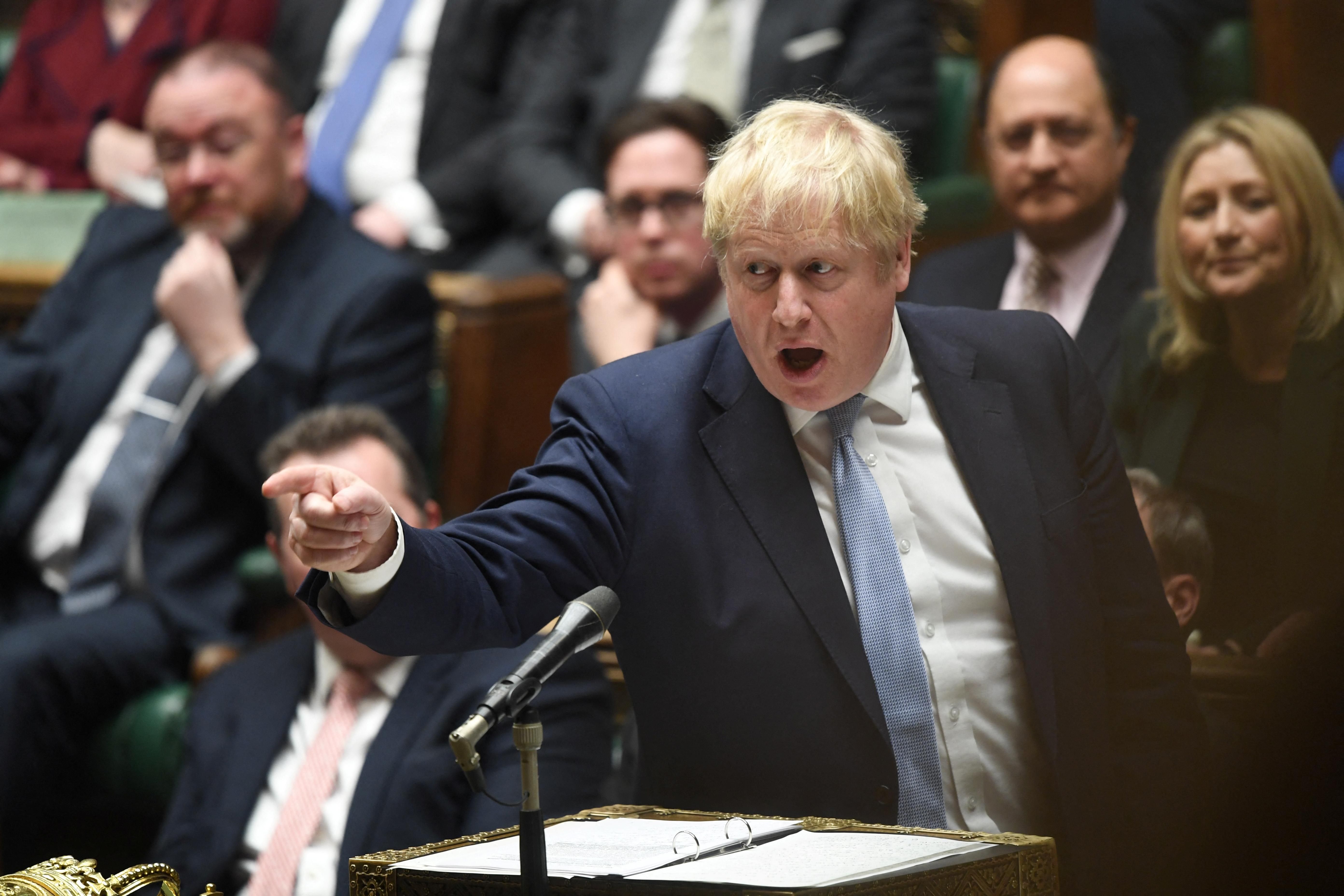What We’re Watching: More Boris drama, Orbán-Putin meeting, US governors vs Biden
Boris Johnson’s stormy Monday. British PM Boris Johnson’s political life got even more complicated on Monday as the highly anticipated “Gray Report” went public, even in heavily redacted form. The report summarizes a parliamentary investigation of parties held at 10 Downing Street during periods of tight COVID restrictions. It remains redacted because many of the events detailed in it are under formal investigation by UK police. But the report still raises questions that Johnson struggled to answer — or simply evaded — during a stormy session of the House of Commons. MPs are drawing particular attention to a party that allegedly took place in Johnson’s residence on November 13, 2020. That damning detail could cost the prime minister support from members of his own party, because Johnson denied during a parliamentary session in December 2021 that any such event took place. If the unredacted Gray Report and police investigation reveal that he lied, it could mean the end of Johnson’s premiership.
Orbán-Putin catch-up. Hungary’s populist PM Viktor Orbán travels to Moscow on Tuesday to meet with his pal Vladimir Putin. The timing is awkward with the trip coming just as the EU — to which Hungary belongs — is trying to coordinate a unified response to Russia’s encroachment on the Ukrainian border. But Orbán, who is facing a close election this spring, has his own reasons for cozying up to the Kremlin. Amid a natural gas shortage in Europe, Budapest is looking to shore up supplies from Moscow (the two states recently inked a new 15-year energy deal). With inflation in Hungary so high that it has prompted government price caps on certain products, Orbán also wants greater cooperation from Moscow on food supplies. Brussels and Budapest have long clashed over the primacy of EU law, so the Ukrainian crisis is just the latest issue driving a wedge between Hungary and the bloc.
COVID in America. America’s pandemic response has long been politicized, with leading Democrats mostly supporting President Joe Biden’s containment measures, and many Republicans opposing them. Now a group of bipartisan governors want the Biden administration to change tack because they believe omicron has brought the country to the endemic stage of COVID. To return to normal, they said after meeting with Biden on Monday, the public needs to “learn to live” with the virus. This comes as the omicron wave recedes in parts of the country, including the northeast, which bore the brunt of it. Still, hospitalizations remain high in many states. The division captures the president’s predicament: he’s desperate to return the US to something resembling “normalcy” before November’s midterm elections. Meanwhile, Biden’s chief medical advisor Anthony Fauci is urging caution and refuting the notion that we are in the endemic stage.